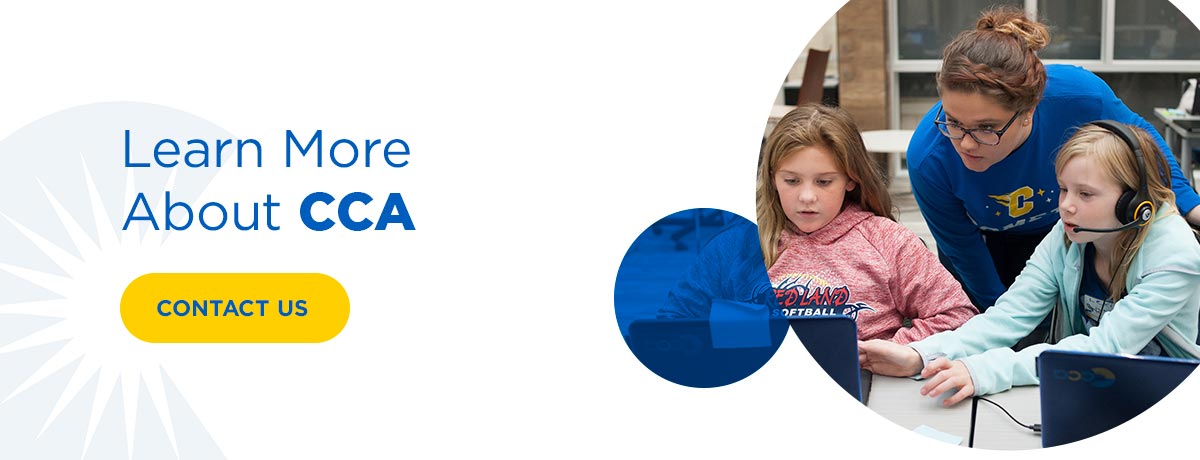Enrollment Now Open for Second Semester. Click Here
Enrollment Now Open for Second Semester. Click Here

The possibilities are endless when it comes to music. Whether it’s joy, amusement, sadness, or relaxation, music enables us to feel nearly every emotion we experience in our lives.
Music can provide many academic and learning benefits, such as improving memory, coordination, and alertness. Regardless of your student’s age, encouraging them to listen to music is a great way to promote brain development. Discover how music benefits both the brain and soul, as well as some of the best music for child development in this article.
Music and the brain are closely linked. Just like going to the gym exercises the body, listening to music exercises the brain. According to research, listening to music can decrease blood pressure and anxiety. It can also improve mental alertness, mood, and sleep quality. Music is more than a mental health booster — it truly improves the quality of life.
Introducing your student to music at a young age can benefit learning and development in a variety of ways. Here are some examples:
Music affects people in different ways, and age and development level can play a role. That’s why age groups tend to respond to music differently. Let’s explore how music can influence certain age groups and what types of music are generally the most beneficial for each.
Music and early childhood development often go hand in hand. Through a combination of music and movement, young children can build social and group participation skills, express their emotions, learn new words and concepts, and practice balance and coordination, among other things.
Generally, toddlers and preschoolers enjoy singing just because they can. Most aren’t self-conscious about their voices, but rather eager to let them roar. Young children tend to like songs that repeat melodies and words, use rhythms with a clear-cut beat, or ask them to follow a set of instructions. That’s why they enjoy nursery rhymes and songs about silly characters, animals, and toys.
Classical music is another great option for your toddler or preschooler. Try out the classics like Mozart, Beethoven, or Vivaldi. You can also spruce things up with some African, Middle Eastern, Indian, Mexican, or other cultural tunes to expose them to different styles. Fast, upbeat songs are typically better for playtime, while slow and calming songs are more suitable for bedtime and naps.
Elementary school students typically start to express their likes and dislikes of different music types. While they can still appreciate classical music, they’ll likely express distaste for nursery rhymes and “little kid” songs. They may also start to show interest in music education, like singing lessons or learning a new instrument.
This stage of development can be a good time to introduce students to new music genres. Here are some examples:

Middle schoolers experience a range of developmental milestones such as growing independence, puberty, and greater influence from peers. They’ll likely want to explore music on their own, finding new songs and genres that appeal to them.
Allow your child to discover their unique music taste within reason. As a parent, it’s important to set boundaries in all areas, including music. Remember to enforce age-appropriate tunes for your middle schooler. Try to keep them away from music with explicit or violent lyrics.
Now that we’ve explored some of the best ways for kids to listen to music, let’s hear from some teachers and parents regarding their thoughts on music and development. The answers to the questions below come from parents and staff members of Commonwealth Charter Academy (CCA).
Respondents expressed a variety of music’s developmental benefits in their answers to this question. Here are some of their thoughts:
When asked whether they believe music makes a difference in the classroom, nine out of nine respondents answered “yes.”
Below are some informational songs recommended by educators and parents:
Here were some responses when asked how students respond to music:
Lastly, here are some ways teachers incorporate music in the classroom:

At CCA, we understand the importance of music in the classroom. Through our rich assortment of cyber school courses, your child can pursue music and a variety of other lifelong skills. To learn more about our programs and services, contact us today!
Enrollment Now Open for Second Semester. Click Here